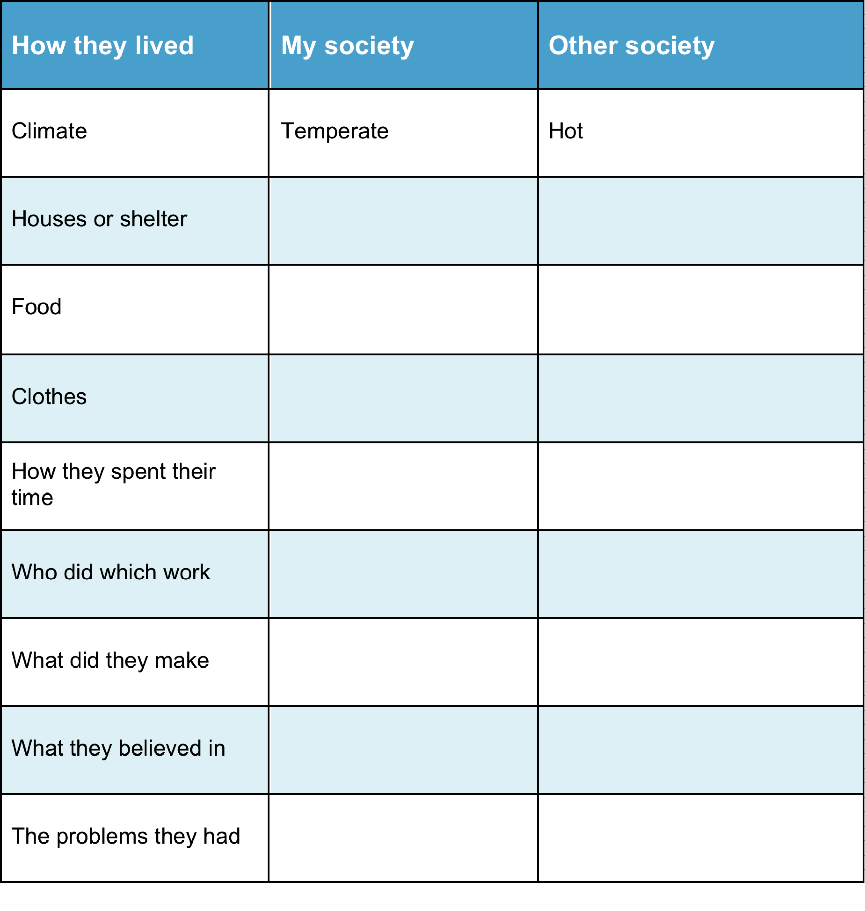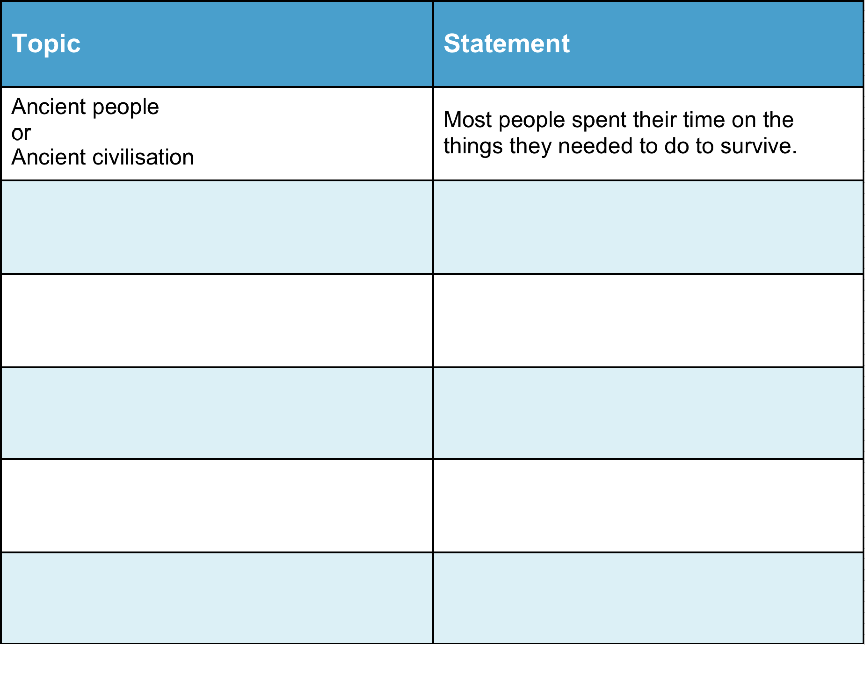Information for Teachers
Curriculum links
Australian Science Standards
ESS (ACSSU075) Rocks and fossils show evidence of changes in Earth’s surface features
NDS (ACSHE081) Science involves testing predictions by gathering data and using evidence to develop explanations of events and phenomena and reflects historical and cultural contributions
New Zealand Science Achievement Objectives
NS: Scientists’ investigations are informed by current scientific theories and aim to collect evidence that will be interpreted through processes of logical argument
LW: The impact of natural events and human actions on an ecosystem
Helpful websites
You may want to direct your students to websites to help with their investigations.
Students can search for information about animals that once lived in their country:
extinct+North+American+animals
They can search for information about people who lived long ago:
ancient+Egypt+beliefs
Pompeii+archeologist+findings
ancient+Greece+buildings+people
Anasazi+people+homes+food
How to search the internet
1 Keep your request short
Fewer words will give a more accurate search.
2 Choose exactly what you want
For example: Arctic Circle Climate
3 Use quotes
Double quotes around a set of words tell the search engine to consider those exact words in that exact order without any change. For example: “Arctic Circle Climate”
4 Use the plus sign (+)
If you add a plus sign (+) between words, the internet will search for all the words. For example: migrate+birds+whales+mammal
5 Use the minus sign (–) to say what you don’t want
Use a minus sign (–) to show words you do not want to appear in your results. For example: if you search for burrowing animals and do not want mammals in your search, –mammals will exclude mammals. Note that you need to put a space before the minus sign for the word to be excluded.
6 Be very clear about what you don’t want
Part 1
Ask questions and make predictions
After reading Time Detectives, you may have many questions about the past history of people and animals.
List your questions
- Compare your list with questions that others have.
- Choose a question you would like to investigate.
- You can work alone, with a partner, or in a small group.
You may want to choose one or more of these questions to investigate
Q1. Investigate an ancient civilisation. Find out how people lived and how they fed themselves. What was important in their lives and what traditions and beliefs did you find the most interesting?
Q2. Compare what you know about a society from the past with your own society. How are they the same? How are they different?
Q3. Find out about an animal that lived in the past. Are there animals on Earth today that are related to that animal? How have they changed?
Go to Part 2 Plan and investigate →Part 2
Plan and investigate
Do searches in the internet or in books or talk to people who can help to find the information you are looking for.
Your teacher may suggest suitable websites for further information.
Go to Part 3 Record and analyse data →Part 3
Record and analyse data
Find a way of recording your information that will allow you to see any patterns in the data.
Data Chart for comparing societies
 Download Chart
Download Chart
Go to Part 4 Evaluate the information →
Part 4
Evaluate the information
1. Look over the information you have gathered and the patterns you have found.
What have we learned so far about the way people go about solving puzzles about past times?
What do we know about life in the ancient culture you chose? How did archaeologists make these discoveries?
2. Search for other patterns.
3. Makes notes about what you find.
Go to Part 5 Communicate and share ideas →Part 5
Communicate and share ideas
Look over all of the information that you have gathered in your investigation.
What are the most important ideas about your topic?
Make a chart showing the most important ideas.
 Download Chart
Download Chart
← Return to menu
